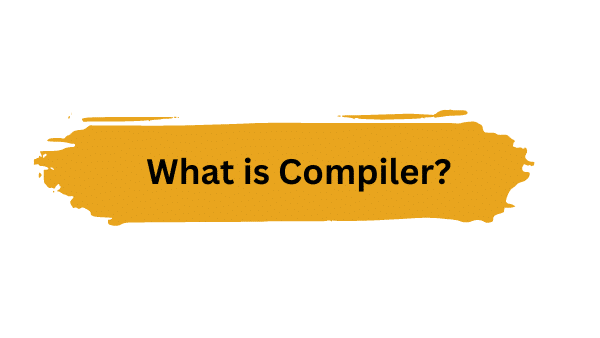Decompilation is the process of transforming machine-readable code into human-readable source code that retains the original code’s functionality. The opposite of compiling is decompiled.
Decompilation cannot be used to reproduce original source code because original code identifiers, such as variable and function names, are seldom stored in computer code. Code containing metadata or debugging information, on the other hand, may contain identifiers.
When the source code for a program is no longer available, decompilation is frequently used. As a result, it is a type of reverse engineering. Decompilation can also be used for computer security, interoperability, and error repair.
Decompilation is used for a variety of purposes, including:
- Understanding the functioning of code
- Error correction
- Improving Computer Security
- Passwords, copy protection, and time limits are being removed.
- Investigating computer infections
- Recovering and archiving lost source code
A decompiler (the tool used in decompilation) can be purchased independently rather than as part of a package with vendor development tools.
In most circumstances, decompiling copyrighted software is prohibited. However, copyright regulations in the United States and Europe permit limited decompilation usage, such as interoperability.
Table of Contents
More Links
Funny Jokes
Technical Writing
What is a Jamboard| The Definitive Guide
Jargon Definition and Examples
jokes and riddles
Frequently Asked Questions
1. What is a compiler in programming?
A compiler is a process that converts high-level programming language source code to low-level machine language.
2. What is the Googlebot called?
Googlebot is a generic name for Google’s web crawler. Googlebot is the umbrella term for two sorts of crawlers: a desktop crawler that mimics a desktop user and a mobile crawler that simulates a mobile device user.
3. Biochip in simple words?
A biochip is a small-scale device that is used to study organic chemicals present in live organisms.
In simple words, a biochip is a small laboratory that can perform hundreds of biological activities concurrently. It is a collection of micro-test sites or microarrays arranged on the surface of a solid substrate that is meant to run many tests at once in order to achieve increased speed and throughput.
4. What Does Decompile Mean?
Decompilation is the process of transforming machine-readable code into human-readable source code that retains the original code’s functionality. The opposite of compiling is decompiling.
5. What does the concept of provisioning mean?
The process of making IT resources, data, and other technical services available to users and customers is known as provisioning. It’s a broad term that encompasses a wide range of services, the most significant of which is initial service setup.
6. How does the concept of brainstorming work?
Brainstorming is a group activity in which each member expresses their ideas as they arise. Ideas are classified and graded at the end of the session for further action.
7. What is the concept of canonical in computer sciences?
Canonical refers to an attribute’s standard state or behavior in computer science. This term is derived from mathematics and is used to denote unique and/or natural concepts.
8. What is meant by the Internet of Things?
The Internet of Things (IoT) is a computer concept that aims to turn our physical environment into a complex and dynamic network of linked objects on a massive scale. In other terms, the Internet of Things refers to physical items equipped with sensors, computing power, software, and other technologies that communicate with and exchange data with other devices and systems over the Internet or other communication networks.
9. Define alliteration?
Alliteration (also known as head rhyme, start rhyme, or front rhyme) is a linguistic method in which a string of words or phrases uses the same letter or letter combinations over and over. ‘Tasty tacos,’ for example, is an alliteration, but ‘thirty typists,’ is not since the letters ‘th’ and ‘ty’ do not sound the same.
10. Is Python a compiler?
Python is an interpreted language, which means that a Python program’s source code is translated into bytecode before being run by the Python virtual machine. Python differs from major compiled languages such as C and C + + in that Python code does not need to be produced and linked in the same way that code for these languages does.
More Links
STEM Education| 5 Easy Key Points
What is Software Piracy?
Software Engineer| Coding Guy
What is Gross Pay?| Definition & Examples
What Is an Au Pair|Au Pair Meaning & Average pay
- BCl3 Lewis Structure in four simple steps - November 1, 2023
- PH3 Lewis Structure in four simple steps - October 8, 2023
- PF3 Lewis structure in four simple steps - September 24, 2023



